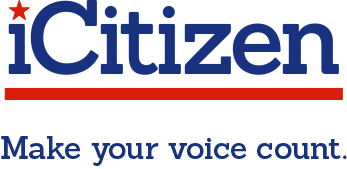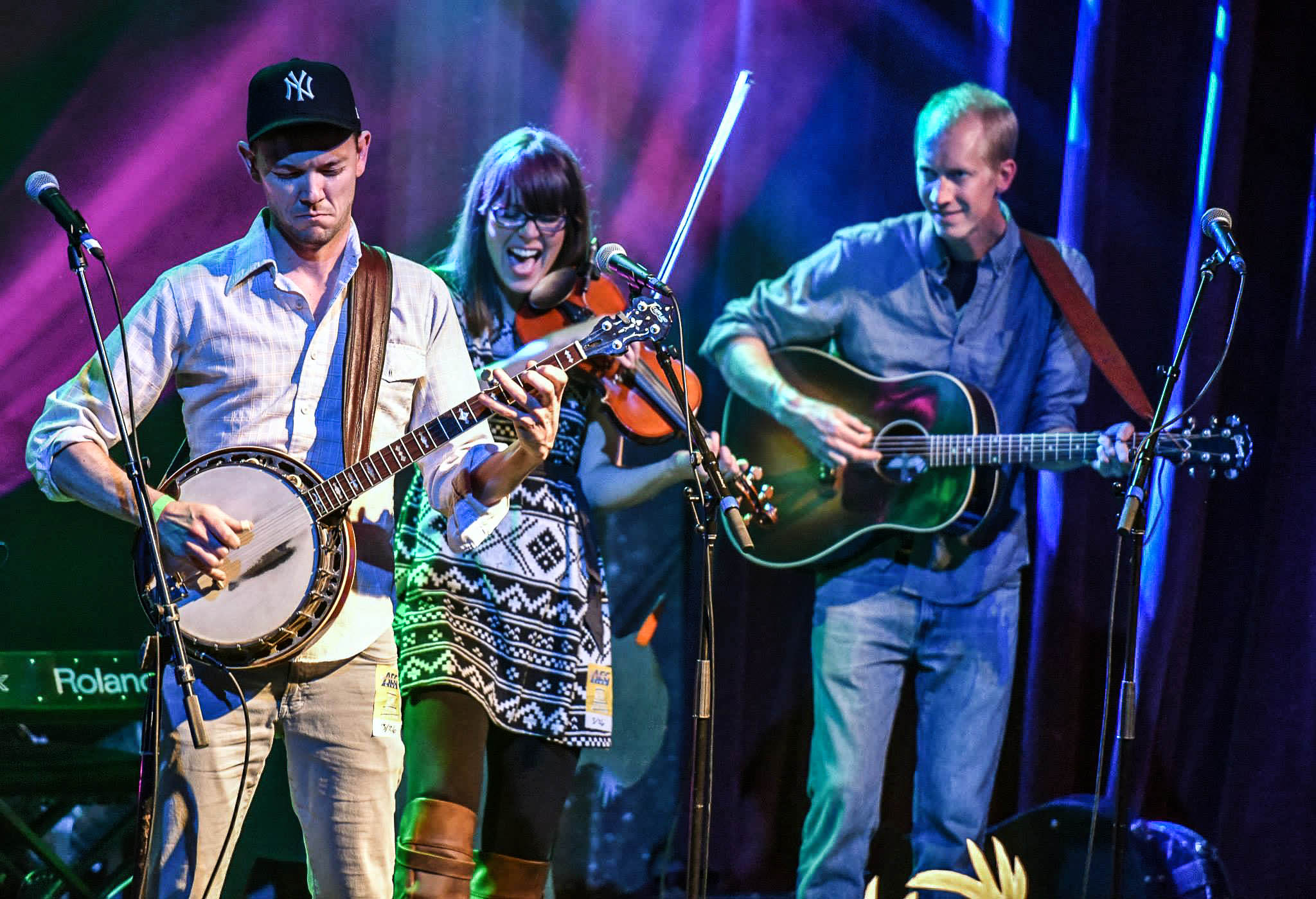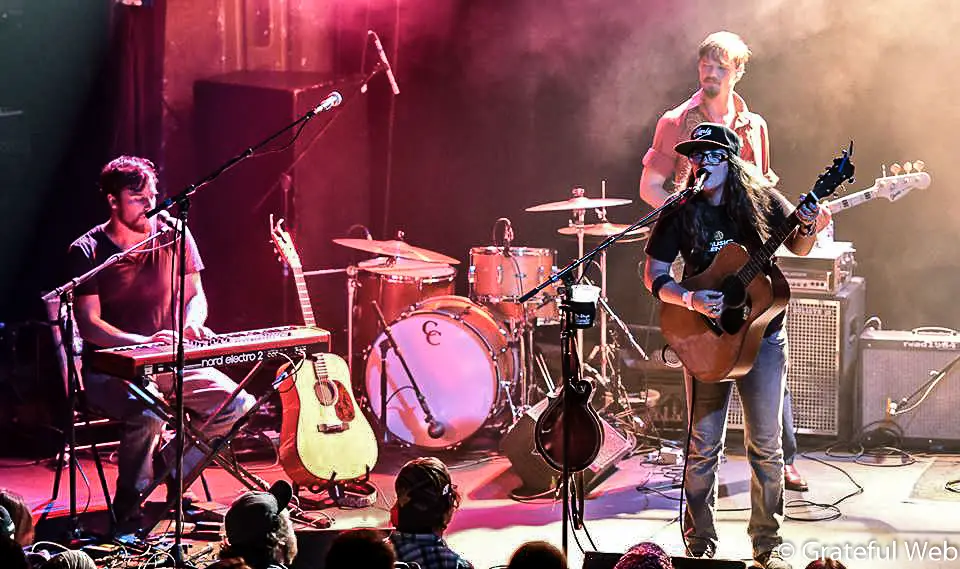iCitizen, a non-partisan group promoting political awareness, has created an app that connects people with relevant political issues and allows voters to be confident and aware about their vote. iCitizen has spent the summer at various festivals and concerts, alongside HeadCount registering voters. Grateful Web recently interviewed iCitizen to get the full story.
GW: What is iCitizen?
IC: iCitizen is a free, nonpartisan app designed as a solution to the lack of transparency, accountability, and public engagement in American politics right now. Statistics show that more Americans than ever are frustrated with our government, but most don’t feel empowered to do anything about it.
GW: How does the app work?
IC: Our app works to change that by allowing each individual user to construct their own “political DNA”—in other words, the personalized set of issues they care most about. Then they can read news articles about those issues, review and vote on related legislation, and directly tell their representatives what they want, all with the tap of a finger. It has never been so easy access and then act on political information, and the team behind iCitizen really believes it has the power to revolutionize a system that simply doesn’t work anymore.
GW: Where has iCitizen been this summer?
IC: This summer we have been all over the country with our partner HeadCount, a nonpartisan nonprofit that registers voters at concerts and music festivals. They do amazing work promoting civic engagement, having registered over 300,000 people at these events in the last decade, so joining forces with them on this festival tour seemed like a natural fit (not to mention a lot of fun). The coast-to-coast tour included eleven festivals such as Bonnaroo in Tennessee, Newport Folk Festival in Rhode Island and Outside Lands in California. We even hopped on some of the stops for Jay-Z and Beyoncé’s “On The Run” tour.
GW: What is iCitizen's primary goal?
IC: iCitizen’s primary goal is simple. We want every citizen of the United States to have a meaningful voice in our government, which is why we’ve created a tool that allows you to do that from the palm of your hand. We often hear politicians referencing “the American people” and speaking on our behalf. But if you ask most Americans if our government knows or cares what they want, regardless of party affiliations, the answer is a resounding “No.” As a free platform that revolves completely around each user’s individual needs and interests, iCitizen can’t be influenced by lobbyists, corporations or special-interest groups. We’re 100% citizen-focused and citizen-driven, and we want to put everyday Americans back in control of our democracy.
GW: Have you had success at festivals this summer reaching out to the youth?
IC: Yes! The “millennial” generation is publicly much-maligned as apathetic, disengaged and self-involved. Even if that were true, they would still be an essential piece of the puzzle if we are going to solve the problem of getting our political system back on track. But we actually found that many of the concert and festival-goers who were the most excited about iCitizen this summer were people from this age group. As a generation that has been raised on technology, they have the highest understanding and expectations of what technology can do. Those encounters were some of the highlights of the summer, and confirmed that people of all generations DO have hope that we can fix what’s wrong with our government.
GW: What do you think makes it difficult for young people to be aware of voting issues and politics?
IC: Historically, political activism hasn’t usually been a top priority for youth unless there is a major issue that directly affects their way of life, like what the country saw during the Vietnam War. But we want to change the conversation by making it so easy to follow issues, track representatives and inform their decisions that it becomes surprising when youth aren’t aware of voting issues and politics.
This generation of youth is incredibly mobile, social, and adventurous, but they are used to information being easily available at their fingertips. Despite its importance, political information is often scattered, convoluted or biased one way or another. They don’t have the time or the patience to dig through mountains of political information to find the things they care about. But now they don’t have to! iCitizen collects this information into feeds, so that news, legislation, and information about their representatives’ voting records and campaign contributions is all in one place, in your pocket and ready to go. Once staying politically informed becomes this simple, the list of excuses for anybody staying in the dark start to disappear.
GW: Where there any difficulties associated with your presence at festivals this summer?
IC: Well besides the usual trials and tribulations of music festivals (mosquitoes, tangled tent poles, inclement weather), the greatest challenge at many of the festivals was simply trying to get people’s attention. Most people don’t come to concerts and music festivals with political engagement on their minds. They’re excited about seeing music, spending time with friends and family, etc. There was also a healthy amount of skepticism at first that iCitizen doesn’t come with any kind of catch or hidden agenda…”free” and “nonpartisan” are two qualities you don’t see often these days. However, we had iPads set up to demonstrate the app and once people could see what we were doing they were usually pleasantly surprised and enthusiastic about it.
GW: At the end of the day, do you think iCitizen successfully influences young people to vote?
IC: iCitizen is really the first technology that personalizes the political experience and consolidates so much information into one place, which we think is going to make it encourage young people to be more politically active. It’s compatible with every tablet and smartphone platform, so it’s incredibly mobile. And voting is one of the focal points of the app. Users can vote to support or oppose federal and state legislation, information which we will then send directly to their representatives.
And since we realize real change is going to happen with citizens working together, not independently, there’s a social component of iCitizen too. Users can easily share their favorite polls, articles and legislation with friends and even their representatives through text, email and social media. This is going to be very appealing to a generation so fond of sharing that economists had to invent the term “sharing economy” to explain their spending habits.
Moreover, there is a large range of polling questions, through which users can see how their political opinions compare to other users in the state and the nation. Engagement typically spikes during presidential elections years, but we think that by prioritizing voting in between election cycles and showing young users why it matters, we can help them form a lasting habit of regular civic engagement.
GW: Can iCitizen register voters?
IC: iCitizen employees registered hundreds of voters this summer as part of our partnership with HeadCount, but the app doesn’t currently have the ability to register new voters. There are a lot of people who think the future of voting is mobile—that in the near future, voters will be able to participate in elections right through their handheld mobile devices. We hope to lead that charge, so who knows? Maybe one our next presidents will be elected through iCitizen.
GW: Does iCitizen side with any specific political belief?
IC: This is a question we get all the time. Many people are surprised when they find out that the answer is absolutely not. From the top down, both the company and the app are powered by the idea of total nonpartisanship and a team that exemplifies it. We don’t care whether you are Democrat, Republican, or anything in between. We want to give all citizens the tools to engage with politics on their own terms and develop their own unique voice. Political neutrality can be a difficult line to walk. That’s why we have current and former elected representatives from both sides of the aisle advising us to help us make sure that as we continue to develop the app it stays as unbiased as possible.
GW: How many people work with iCitizen?
IC: As a young technology startup, we have a relatively small staff that’s growing in concert with our user base. Partnerships such as the one we’ve formed with HeadCount help us to extend our reach and work together with other organizations whose missions align with our own. While we’re not a nonprofit, there are no advertisements in the app and there will never be a cost to the user. We want the app to be accessible to everyone and we won’t take money to promote certain perspectives.
GW:Young voters are important. But so many young people decide not to vote. Why do you think this is?
IC: There are many answers to this question. Young people often don’t feel like they have as much at stake in an election as older people do. Medicaid, Medicare, Social Security, taxes…these issues, while hugely important, don’t affect young people as directly as they affect older generations. As a result, they’re less likely to drive youth to the polls.
Additionally, young people’s lives are often in a constant state of flux. The uncertainty about their future absorbs a lot of time and energy as they try to figure out where they’ll be living, working, or going to school. As people get older and their lives stabilize, they have more time, wisdom and experience to invest in voting, and more strongly held convictions about how they want to vote.
One thing I heard over and over again this summer from young people was that Democrats and Republicans are equally responsible for the polarizing and ineffective partisanship characterizing our country’s politics recently. They believe neither party has proven itself capable of successful leadership and voting for one is no different than voting for the other. This perception has to change if we want more young people to turn out at the polls. The more people we can get to express their opinions through iCitizen, the more accountable our representatives are to the people that elected them and the more our views will be reflected in their policies.
GW: How do you get young people's attention?
IC: We don’t expect America’s youth to show up at our door begging for ways to be more politically engaged, so we have to take iCitizen to them. Concerts and festivals are a great start, but we’re just warming up. We’re going to take iCitizen to classrooms and college campuses, and get involved with politically active student organizations like College Democrats and College Republicans. This week we’re launching the iCitizen CEO (Campus Engagement Officer) program, a nationwide initiative looking for students who want to get involved helping us spread the word about the app in exchange raising money and other prizes for themselves or their favorite organizations. College students can find more information about that at this link:
At iCitizen we believe that political engagement at all levels and from all generations has never been more important than it is now, and youth are an essential part of our movement to change American politics forever. For the first time in history we are making it just as simple to influence government as it is to send a tweet, post a picture or check your email—that’s why think this app is one of the most powerful political tools of all time, regardless of your age.





















